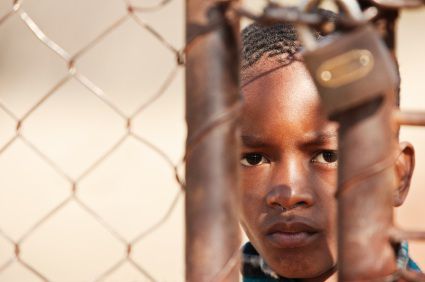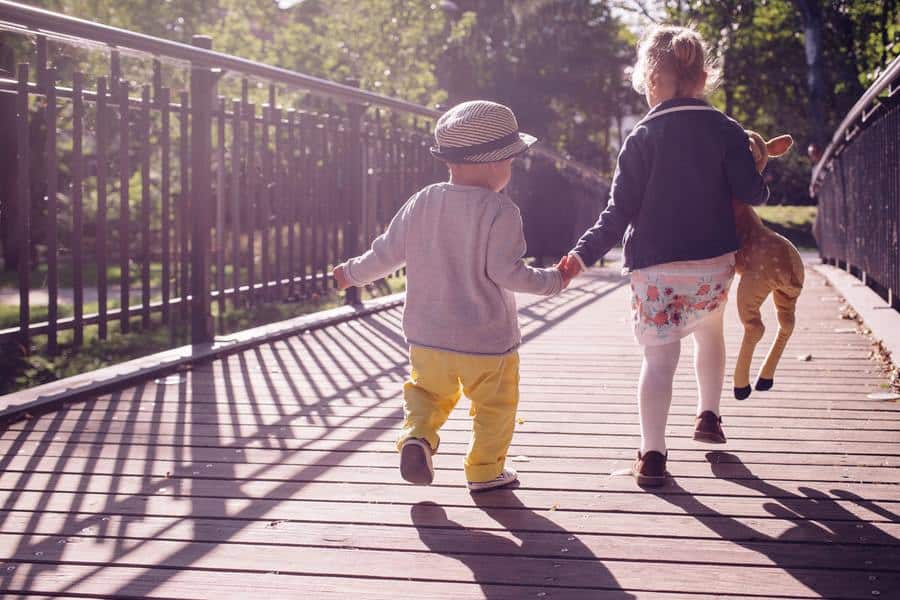 I went to a swanky Gastown dinner sponsored by Invisalign Teen. Having never had braces and with toddlers, I had no idea what advances there have been in dentistry. Wow. Headgear? No. Ugly metal train-track things that get bits of food stuck and leave a teenager date-less? Nope. Invisalign are hard see-through cases – trays that you can pop in and out of your mouth that gently maneuver the teeth info proper formation. The biggest benefit in my view relates to self-esteem for teens and adults requiring braces. (Not to mention few diet or sports restrictions.) I won’t go into the amount of therapy I needed after having acne as a teenager, but I was certainly affected by not feeling attractive. Ridiculous but true – especially during the teenage years. Anything that can help teens through this stage of life is such a blessing. A tad more expensive than traditional braces, but they certainly get our vote. Oh – and Moms can certainly benefit too.
I went to a swanky Gastown dinner sponsored by Invisalign Teen. Having never had braces and with toddlers, I had no idea what advances there have been in dentistry. Wow. Headgear? No. Ugly metal train-track things that get bits of food stuck and leave a teenager date-less? Nope. Invisalign are hard see-through cases – trays that you can pop in and out of your mouth that gently maneuver the teeth info proper formation. The biggest benefit in my view relates to self-esteem for teens and adults requiring braces. (Not to mention few diet or sports restrictions.) I won’t go into the amount of therapy I needed after having acne as a teenager, but I was certainly affected by not feeling attractive. Ridiculous but true – especially during the teenage years. Anything that can help teens through this stage of life is such a blessing. A tad more expensive than traditional braces, but they certainly get our vote. Oh – and Moms can certainly benefit too.
Sure, more cardio and less wine may top most of our New Year’s Resolution lists, but as parents, it donned on us that we could focus on enriching the growth of our children a bit more efficiently than we do now. There aren’t enough hours in the day, and we often waste so many minutes. When you set 5 or 10-minute daily goals, you can be a much more effective parent without tacking hours onto the day. So don’t worry too much about breaking a sweat at the gym… here are the 2012 UrbanMommies parenting resolutions..
 My friends and family all know that I’m a pretty equable person, one who is, normally, open to listen to advice and suggestions, even when they’re not solicited. However, with everyone else, I’m a bit more reserved. People who know me and my parenting/family dynamic have the right to butt in—but perfect strangers, not so much.
My friends and family all know that I’m a pretty equable person, one who is, normally, open to listen to advice and suggestions, even when they’re not solicited. However, with everyone else, I’m a bit more reserved. People who know me and my parenting/family dynamic have the right to butt in—but perfect strangers, not so much.
I’m not saying that I won’t politely accept a suggestion from another mom at the beach or the park or whatever—heck, I often solicit them! I’ll see some mom who is managing her brood so well, I will ask what her secret is. Or, vice versa, if I see someone having a hard time I’ll offer a kind word, such as to the mom in the grocery store line whose child is having a meltdown: “Don’t worry, we’ve all been there,” and maybe offer to help if I can do it without seeming too busybodyish. But criticism, or “You should do it thus-and-such-way”, type stuff is strictly verboten with me, given and received. Why? Because I’m in no position to judge—and neither are you.
However, today’s culture is infuriatingly nosy and intrusive. Part of this is owed, of course, to the fact that we put our dirty laundry out there for everyone; we blog, tweet and post about everything, and we solicit advice and we give it into the ether in the guise of sharing. I’m just as guilty as everyone else is. The difference is, I don’t butt in and try to act like an expert to someone. I’ll put my two cents in for an article, but I always try to couch my advice in the terms of “this is what works for me, it may not work for you,” and I never say I’m right, or that anyone else is wrong. That’s the sticking point.
What to do with these well-meaning yet clueless people? Well, here’s what I’ve found is effective:
Be polite: smile, nod.
Don’t engage them. It encourages it! At the most, say “Thank you,” even if you’re offended…a public fracas isn’t pretty.
If it continues, tell them, “Thanks for the advice. I’ll consider it. Have a nice day.” (You’re lying, but hey, maybe it’ll shut them up?)
Walk away.
Although, if you have a particularly snarky advice-giver, a nice parting shot may be in order, if you can think of one on the spot. It’s fun…just beat a hasty retreat.
One of the hallmarks of a truly great society is its capacity for compassion. History has shown us little of this, which is why we have to start raising kind and compassionate kids from an early age. Why? Because they will be the ones dictating things to the future generations.
Kindness is something that is innate, but isn’t necessarily a dominant trait in nature. You will see animals in the wild being gentle with each other one moment…then ripping each other to bits the next. Same with humans. We have to train our kids to recognize and tamp down those negative impulses, to cultivate and groom the positive ones. What are some practical ways to do this?
Animals. From an early age, expose children to animals. If you’re a city-dweller or have allergies to domestic pets, try petting zoos and nature exhibits. Visit farms. Let your children see how animals act. Let them hold and touch them (stuff washes off!). Explain that everything and everyone has feelings, and that those feelings matter. A fuzzy chick or bunny can teach a major lesson in kindness and consideration in one setting.
Talk to them like they’re important. You know the old saying, “You give what you get, you get what you give”? It’s very true. If you’re constantly talking down to, belittling, or demeaning your child, making him or her feel incapable of doing good…guess what? Eventually, you’ll have a self-fulfilling prophecy.
Model kindness. If your children don’t see you being kind, what motivation or kind of example do they have to follow? Make sure you are as gracious and compassionate as YOU can be, to show them how it’s done. You will make yourself a better person in the process of making your kids better, too.
Point out the details. Kids are, by nature, narcissistic and egotistical. Physiological and emotional development takes time, and help from a wise elder. Teach them how to note the differences in body language and facial expressions, to gauge how people are feeling—it may give them an opportunity to do something kind in the future. Explain that words can hurt just like fists can, as can social shunning behavior. If they ask something socially unacceptable in public (oh, say, like asking what is wrong with the lady who has the very large and hairy wart on her nose behind you in the bank line’s face), be calm and try not to blow the opportunity to teach a lesson in time and place.
Do Stuff. Rather than just talk about charity, practice it. If you don’t have the money to donate, help organize fund-raisers for worthy causes, donate time at soup kitchens and homes for underprivileged kids, animal shelters, etc. By putting your child literally in a situation where they can make a difference, they will feel better about themselves and it will become an ingrained habit. Tiny kids can learn this lesson by donating their toys, or any toys you provide. Even if all you can do is write a monthly check, have your child help pick the charities.
It’s a process, and should be done deliberately, because a child who is kind and compassionate has the capacity to change the world, one good deed at a time.
 The world is a big, scary place, and as our kids grow up we know that they need to understand that…but we’d really rather protect them from the bad things that happen. Unfortunately, in this information-heavy society it is impossible to hide unpleasant things from kids forever. After all, when Osama bin Laden was killed, Twitter and Facebook lit up with young kids asking, “Who the heck is Osama bin Laden?” If they don’t hear things from you, they will hear things from others, and by controlling the situation you make sure your child gets the right information in the right way. Here are some age-group appropriate tips to watching the news with kids when there’s a world crisis or serious event happening.
The world is a big, scary place, and as our kids grow up we know that they need to understand that…but we’d really rather protect them from the bad things that happen. Unfortunately, in this information-heavy society it is impossible to hide unpleasant things from kids forever. After all, when Osama bin Laden was killed, Twitter and Facebook lit up with young kids asking, “Who the heck is Osama bin Laden?” If they don’t hear things from you, they will hear things from others, and by controlling the situation you make sure your child gets the right information in the right way. Here are some age-group appropriate tips to watching the news with kids when there’s a world crisis or serious event happening.
Younger kids (8 and under).
This age group is very limited in their grasp of the fact that there is a larger world beyond their small orbit. They will hear other adults talking and hear snippets of news, and they will be confused by much of what they hear. They also have a hard time distinguishing what they see on TV and the internet from reality, which is why scary movies and shows bother them so much: they think it’s real! This age group might not benefit from watching a news broadcast with you, because the images might frighten them in the case of natural disasters or violence. If they ask questions, explain things to them in simple terms: “Some groups of people are really mad at each other and are fighting each other. But they are very far away, and there is no chance anything they do will hurt us.” Or, “Sometimes big storms and bad things happen in nature, but we are safe here right now.” Don’t go into too much detail or you risk scaring them; on the other hand, don’t make promises you can’t keep. Unfortunately, things happen when they are least expected.
Tweens. This age group is insatiably curious about everything. They are mentally and emotionally coming into their own, and are really beginning to grasp the enormity of the world—and that bad things do, indeed, happen. They can even be morbid at times, fixating on death and destruction. This is a crucial time for parents to begin connecting with their kids on a mental level, because they need your guidance more than ever. Watch the news with them, and try to explain things as clearly as possible. Use the time as an opportunity to have a discussion, but don’t lecture or you risk boring them. Sometimes TV news may be too graphic, so switch to the newspaper or magazines for lower intensity. If you run across an issue you don’t understand well, take the time to explore the issue together. This cultivates the understanding that parents are humans, too, and that you are approachable and don’t think you are perfect.
Teens. By this age, the child should be well on their way to having their own personal and philosophical beliefs, which you helped to formulate. Discussions about the bad things in the world should come organically, and should be used as chances to firm up your relationship and deepen your understanding about how your child thinks.
As with many mature subjects, pay close attention to your child, and whenever possible, watch with them. Discuss, and make them feel secure in their own environment.
Mass shootings, terror attacks, North Korea…The world is a big, scary place, and as our kids grow up we know that they need to understand that…but we’d really rather protect them from the bad things that happen. Unfortunately, in this information-heavy society it is impossible to hide unpleasant things from kids forever. After all, when Osama bin Laden was killed, Twitter and Facebook lit up with young kids asking, “Who the heck is Osama bin Laden?” If they don’t hear things from you, they will hear things from others, and by controlling the situation you make sure your child gets the right information in the right way. Here are some age-group appropriate tips to watching the news with kids when there’s a world crisis or serious event happening.
Younger kids (8 and under). This age group is very limited in their grasp of the fact that there is a larger world beyond their small orbit. They will hear other adults talking and hear snippets of news, and they will be confused by much of what they hear. They also have a hard time distinguishing what they see on TV and the internet from reality, which is why scary movies and shows bother them so much: they think it’s real! This age group might not benefit from watching a TV news broadcast with you, because the images might frighten them in the case of natural disasters or violence. If they ask questions, explain things to them in simple terms: “Some groups of people are really mad at each other and are fighting each other. But they are very far away, and there is no chance anything they do will hurt us.” Or, “Sometimes big storms and bad things happen in nature, but we are safe here, right now.” Don’t go into too much detail or you risk scaring them; on the other hand, don’t make promises you can’t keep. Unfortunately, things happen when they are least expected.
Tweens. This age group is insatiably curious about everything. They are mentally and emotionally coming into their own, and are really beginning to grasp the enormity of the world—and that bad things do, indeed, happen. They can even be morbid at times, fixating on death and destruction. This is a crucial time for parents to begin connecting with their kids on a mental level, because they need your guidance more than ever. Watch the news with them, and try to explain things as clearly as possible. Use the time as an opportunity to have a discussion, but don’t lecture or you risk boring them. Sometimes TV news may be too graphic, so switch to the newspaper or magazines for lower intensity. If you run across an issue you don’t understand well, take the time to explore the issue together. This cultivates the understanding that parents are humans, too, and that you are approachable and don’t think you are perfect.
Teens. By this age, the child should be well on their way to having their own personal and philosophical beliefs, which you helped to formulate. Discussions about the bad things in the world should come organically, and should be used as chances to firm up your relationship and deepen your understanding about how your child thinks.
 When you move your baby from a crib to a bed it’s official: they’re not a “baby” anymore. When a child gets tall enough that they can actually reach over the crib bars it is time to move them into a bed, or else you risk dangerous accidents. But here comes the fun part: that child is no longer confined to a cage…er, crib, anymore. They can, and will, get up and move around, wander about, and come and find you. Frequently. How do you make the transition easier and faster?
When you move your baby from a crib to a bed it’s official: they’re not a “baby” anymore. When a child gets tall enough that they can actually reach over the crib bars it is time to move them into a bed, or else you risk dangerous accidents. But here comes the fun part: that child is no longer confined to a cage…er, crib, anymore. They can, and will, get up and move around, wander about, and come and find you. Frequently. How do you make the transition easier and faster?
Most parents must wage the “great battle of the binky” eventually, although many of them dread the prospect. Pacifier use is something that is a lot like politics: everyone has an opinion, but not everyone shares it. Some parents refuse to give their baby a pacifier. Others offer the pacifier to their baby as soon as they can. Yet others, in despair of ever sleeping again, try to get their child to use a pacifier, and it does not work for some reason, because the baby won’t take it. For those parents whose children grabbed onto their pacy and soon found it to be as indispensible as their diaper or their bottle, there is hope for weaning your toddler off the pacifier. That battle can be won—it just takes some patience, ingenuity and, sometimes, some subterfuge.
Pacifiers aren’t “evil,” despite what the anti-binky purists say. Most kids will leave their pacifier behind on their own after a while, and those kids that use them don’t have long-term effects from having used them for a long time. Sure, there are some studies which link slightly delayed speech or self-soothing habits to pacifier use, but it isn’t as if the child were bungee jumping or swimming with sharks. However, when your child has pitched a major tantrum in a very public place because they left their binky at home, you will want to end that dependency, as much for your sanity as theirs. Here are some tactics that have had success. Remember that every child is different, so there is no “magic bullet” to this pesky problem.
Waldorf schooling for your child emphasizes the role of the imagination in learning, developing thinking that includes a creative as well as an analytic component. Studies of the education describe its overarching goal as providing young people the basis on which to develop into free, moral and integrated individuals, and to help every child fulfill his or her unique destiny
 Moving with children can be stressful and highly emotional. Kids are sensitive and now more than ever, need to feel secure and loved. They will pick up on your vibes, so make sure to try and relax, and spend loads of time as a family. We’ve got a few more tips on how to ease the transition for your children when packing up and preparing for a move.
Moving with children can be stressful and highly emotional. Kids are sensitive and now more than ever, need to feel secure and loved. They will pick up on your vibes, so make sure to try and relax, and spend loads of time as a family. We’ve got a few more tips on how to ease the transition for your children when packing up and preparing for a move.




